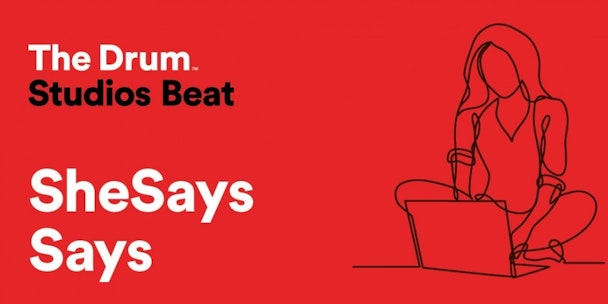The Drum SheSays Says episode 8: WPP Health and Claire Gillis
For this week’s podcast, in collaboration with SheSays Says and The Drum, we speak to the CEO of WPP Health and trained pharmacologist Claire Gillis about ‘creatively transforming healthcare’.

The Drum SheSays Says episode 8: WPP Health and Claire Gillis
With a foundation not just as a pharmacologist but also a health economist and entrepreneur, Claire founded a specialist medical access consultancy called WG Group in 1996. That group was acquired by WPP in 2010 and a few years later, Claire was promoted to international CEO of the WPP Health Practice. Today, she helps clients ‘speak health’ around the world, driving strategies for managed care, disease management and championing better access to healthcare for those that need it.
Associate editor Sonoo Singh sat down with Claire to talk about her passion for everything related to health and business.
“My nana was around for the start of the NHS. Before then, if anyone was sick in the house, it was the men and the children who got the money to go and get fixed. The women didn’t. Once they had their multiple children, they’d be sitting in the corner of the living room, not going anywhere because all of their reproductive apparatus was shot. When the NHS started there were queues of women around the corner. A whole group of women got their lives back,” says Gillis.
“That was a really emotive story for a nine-year-old to hear. That combined with my natural inclination towards science, pushed me into health.”
Despite being damaged by privatisation and underfunding the NHS today still provides that safety net of care to those that need it most and according to Claire, must be protected.
“We need to make sure that every voice has value and we investigate everyone’s issues, everyone’s diseases, to make sure they can live they best lives they can.”
The importance of giving everyone a voice links directly to how advertising health has changed over the years to become more inclusive.
“In our practice, our line is ‘creatively transforming healthcare’. We have a predominance of women in our healthcare creative teams. But it’s not just about gender diversity. We need diversity in background and behaviours. That’s where we get real creativity. That’s as applicable in healthcare as it is outside healthcare.”
Over the last year we have seen advertising lead the charge in breaking taboos around health and wellbeing – from the Bodyform Blood Normal campaign to British start-up Dame’s mission to address the amount of plastic waste the menstrual product industry produces.
“Even looking at the last two years it’s unrecognisable to how it was before. It’s like we have all been given permission to be more open about issues that a number of years ago, we’d sit back and accept as the norm. Dame is a really good example. It’s not just advertising, it’s really good marketing. It’s specific, it’s arresting and it challenges all of our norms.”
At CES earlier this year, amidst all the VR sunglasses and drones on display WPP Health hosted a talk inspired by the surge in healthcare innovations. Wellness is an industry that is booming – valued at $4.2 trillion globally, and growing 12.8% from 2015 to 2017. How has innovation in technology and data tools impacted our approach to health and designing healthcare products?
An example Claire gave is from China, where hospitals are currently experiencing a serious shortage of doctors and healthcare professionals making it hard to triage the enormous number of patients through the system. In an attempt to solve the issue, big hospitals introduced a robot to try and process people faster. Perhaps an indication of how important it is to keep the humanity in healthcare, they found that despite their best efforts in robotics, there were still queues at reception as patients didn’t want to interact with a machine.
“We need to find a way to keep the human in healthcare. For me it’s important to make sure we don’t get distracted by the shiny and always bring it back to the basics, which is what does the data say and how can we address that need. The future is dependant on open collaboration where everyone puts their heads together to reduce the differences in healthcare that we still see in society, and increase access to higher quality care.
“It’s not about doing that tomorrow – we can do all of this today. We just have to have a plan!”
